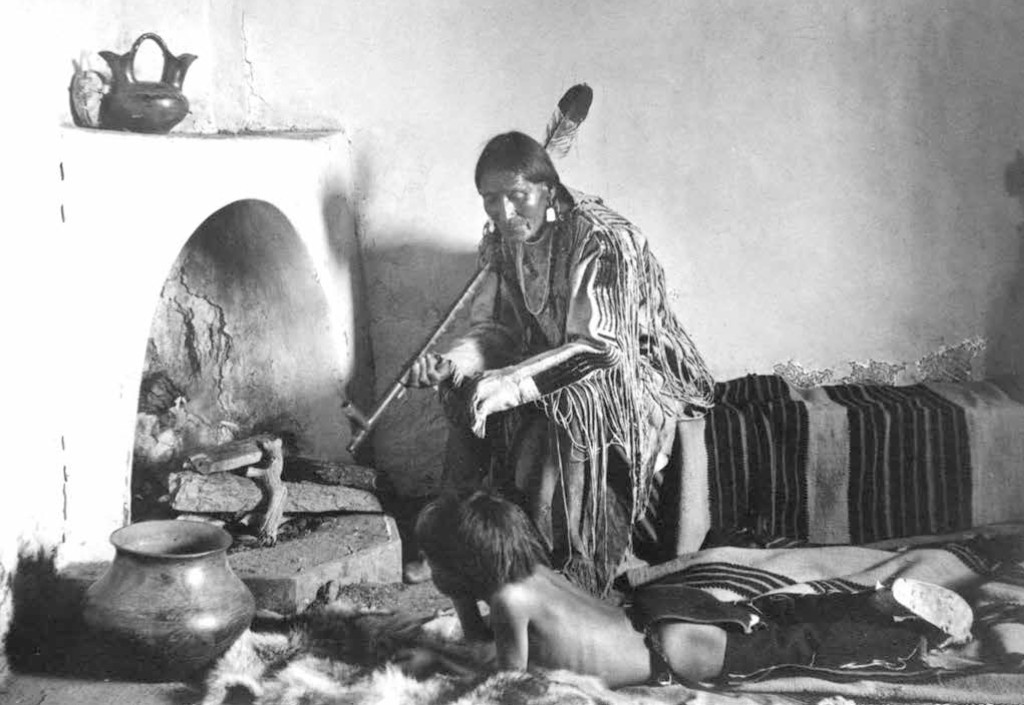Table of Contents
"We have natural leather pouches, medicine bags, if you will. And we have a great deal of our participants that bring our secret tobacco with them because means."And it is a dried type of the plant that is not always dried out to maintain the nicotine that's in the plant, due to the fact that our goal isn't to have the highest quantity of nicotine in there, it's except intake or usage because means.
He informed KLCC at this factor that this was as much as he really felt comfortable sharing tribal experiment their forefather's tobacco, offered its sacred nature (cultural significance of native smokes). Petrie did add that care was taken not to overuse the plant, and making it a practice was inhibited."It was in fact kept in mind in several of our histories that there was a term for someone that did come to be addicted to cigarette, which was a really disparaging term and it was quite discredited," he stated
White sage, typically used in smearing routines, has been found to consist of compounds with antimicrobial homes, which can aid cleanse the air by minimizing microorganisms and microorganisms. Sweetgrass, another commonly made use of natural herb, emits an enjoyable fragrance that is believed to have a relaxing impact on the mind and spirit.
All about Sacred And Ceremonial Use Of Tobacco In Native ...
These smokes play an important function in ceremonies, ceremonies of flow, and spiritual rituals, acting as a channel for communication with forefathers, spirits, and the natural globe - cultural significance of native smokes. By understanding and appreciating the value of Native smokes in these contexts, we can value the deepness of Aboriginal knowledge and foster social understanding
This sharing needs to occur on fair terms, with Aboriginal voices and point of views at the center. By appreciating the social protocols, seeking consent, and sustaining Indigenous-owned businesses and initiatives, we can add to the preservation and revitalization of Native smokes in a manner that benefits Native communities. To engage with Native smokes responsibly, it is important to approach them with regard, cultural level of sensitivity, and understanding of their sacred nature.
By coming close to Indigenous smokes with regard, social level of sensitivity, and accountable intake, we can honor and preserve Aboriginal traditions while supporting the well-being and empowerment of Aboriginal areas. - cultural significance of native smokes
Commercial Tobacco Use In American Indian And Alaska ... for Beginners

Not all Native tribes have a cultural practice that entails using burning tobacco leaves, but in areas of the United States that have the warm and moist weather suitable to expanding tobacco, many have traditions of using conventional cigarette in spiritual ceremonies, gift offering, medication, and mentors. Many tribes remain to pass down trainings and tales about the origins of conventional cigarette and its religious significance.
Some tribes have unique containers that hold the prepared tobacco till it is ready to use. When tobacco is ceremonially shed, the smoke is usually held in the mouth and not inhaled into the lungs. Several tribes that shed cigarette believe that it carries their ideas and petitions to their spiritual divine beings.
For instance, People in Minnesota are dealing with cigarette control policies to create smoke cost-free spaces and pow wows, providing cessation assistance in facilities, and using monthly classes on how to expand and collect conventional cigarette. Discover more concerning the methods made use of by Minnesota tribes right here. A number of Tribes have done something about it to restrict the sale of e-cigarettes, both in response to the break out of lung injuries connected with usage of the items (EVALI) and in response to firms like JUUL pushing their products on the appointments (cultural significance of native smokes).
Native American Tribes And Smoking - Tobacco - The Facts
There is substantial variation in commercial tobacco retailing throughout Tribal jurisdictions. One study comparing methods on and near Tribal jurisdictions in Arizona, The Golden State, and Oklahoma in between 2015 2017 discovered that while e-cigarettes were ubiquitous, there was a much more variation in traditional cigarette schedule, with the most kinds of cigarettes and more ads for cigarettes existing at tobacco specialized shops in Tribal Oklahoma. Prices differed as well, with some Tribal commercial tobacco retailers marketing products at greater rates than non-Tribal rivals, while others had reduced rates.

[4,] Discover more regarding typical Native American use of cigarette: Last updated July 19, 2022.
To watch this website you need to go to the very least 18 years of ages.
The Main Principles Of Racial/ethnic Minorities - Smoking Cessation Leadership Center
Exists evidence of Native American tribes suffering health effects from cigarette smoking tobacco? I was talking with some of my buddies about the impacts of smoking cigarettes, and one of them suggested that it was mainly cultural (i. e. individuals in our culture are more stressed out, which makes them smoke more).
Does anyone understand if this is real, or at the very least where I could find more details concerning it? (15 responses overall).
For hundreds of years, natural cigarette has been an integral part of Indigenous society in lots of parts of British Columbia and Canada. Used in routine, event and petition, tobacco was taken into consideration a spiritual plant with immense healing and spiritual advantages. For these factors, the cigarette plant need to be treated with wonderful regard.
Navigation
Latest Posts
10 Simple Techniques For Value Buds Ontario
The Vape Store Toronto Statements
Facts About Vape Shops Fuming Over Ontario's Proposed Restrictions Uncovered